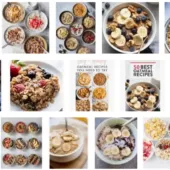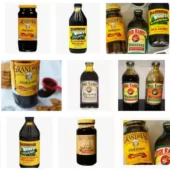Most popular types of whole milk are acid forming. But some are slightly alkalizing. Though one rare form of whole milk has such a low PRAL value, it makes the group average for acid load slightly negative.
Before you use this PRAL Whole Milk List, you must understand and agree to PRAL Food Lists Principles
Acid-Alkaline Whole Milk List
I list milk with the lowest PRAL index first. Because these have the lowest acid load. So the most alkalizing dairy foods show first. But you can click the food table headings to change sort order.
| Main food description | Energy (kcal per 100 g) | PRAL ( 100 g ) | PRAL ( 100 calories ) |
|---|---|---|---|
| Milk, whole | 61 | 0.15 | 0.25 |
| Milk, low sodium, whole | 61 | -2.06 | -3.38 |
| Milk, calcium fortified, whole | 61 | 0.15 | 0.25 |
| Milk, lactose free, whole | 61 | 0.15 | 0.25 |
| Buttermilk, whole | 62 | 0.13 | 0.21 |
| Goat's milk, whole | 69 | -0.54 | -0.78 |
| Milk, dry, reconstituted, whole | 76 | -0.14 | -0.18 |
| Milk, evaporated, NS as to fat content | 134 | 0.47 | 0.35 |
| Milk, evaporated, whole | 134 | 0.47 | 0.35 |

For the whole milk category, the average PRAL values are -0.14 per 100 grams and -0.30 per 100 calories. To put this in context, compare with other dairy foods in the Food Category List.
I am unable to find the type of low sodium milk that USDA include in their database. It has unusually high potassium and low magnesium that form the low PRAL alkalinity value. So I’ve illustrated with an image of goat’s milk.
Your Alkaline Whole Milk
Remember, factors such as growing conditions and variety affect fresh food nutrients. USDA database values are an average of many samples. So your PRAL values for milk will vary from day to day. But they are always an estimate of actual acid load on your kidneys. Which I explain more in the notes about PRAL principles on the category list page.
Leave Acid-Alkaline Whole Milk PRAL List to browse the Complete PRAL Food Category List.
Whole Milk Related Topics
Please remember: to find more related pages that are relevant to you, use the search box near the top of every page.
Common Terms: Enduring Nutrient Facts, milk



